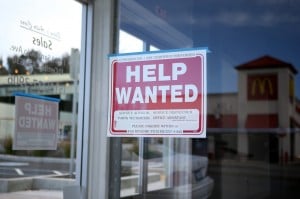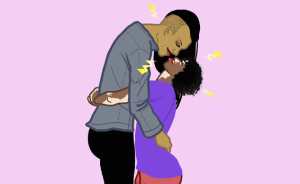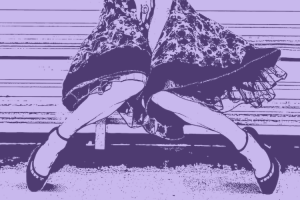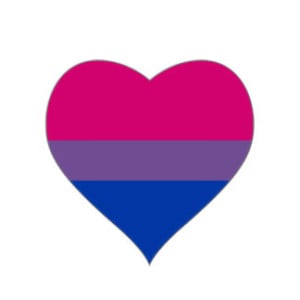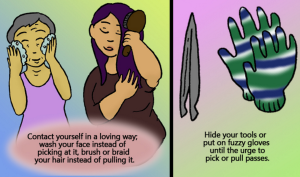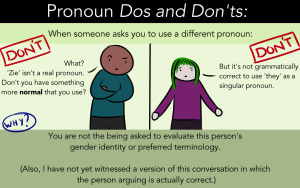
Students from East Los Angeles high schools protesting against president-elect Donald Trump on November 14, 2016, on their way to City Hall in downtown Los Angeles. Photo Credit: Frederic J. Brown/AFP/Getty Images
I have devoted my career to advocating for body respect.
It isn’t easy being a conscientious objector in a war zone (that is, the “war on obesity”), where fat bodies take the blame for everything from health epidemic to the ruin of the economy and even global warming. (Surprise: those are false narratives.)
For the past fifteen years, my professorship gave me a platform to explore and speak on issues important to me.
Eventually, I achieved a tenured status – which is exceptionally difficult while speaking truth to power – and though tenure is held out to be a guarantee of academic freedom, my position was consistently challenged by forces threatened by my unwillingness to be complacent or silent.
It saddens me to see the power of industry to control academia, manipulate the education of health professionals, and suppress critical thought.
Consider this appalling example.
For the first decade of my academic career, I taught nutrition through the Biology Department at the largest community college in California. I was also an outspoken advocate for nutrition education reform.
In 2013, my school’s accreditation was challenged. While mismanagement was part of the concern, the larger root issue was threat by forces wanting to privatize education.
In the midst of the accreditation scrutiny, several dietetics credential programs across the state revoked transfer credit for students taking my introductory nutrition course. They didn’t cite a reason.
My course outline included all their required topics, had long been in use by me and other teachers in my school, and was similar to approved outlines used at other schools.
I did teach additional sections, like one on “food politics,” but there’s nothing that precludes a course from going beyond the required topics and most do.
Nothing had changed at this pivotal time, other than increased attention for my whistle-blowing and advocacy for nutrition education reform.
My department’s response wasn’t to demand an explanation.
Though all evidence – including student evaluations and scrutiny by faculty – pointed to the course as successful, the department instead made motions to prohibit me from teaching it.
Losing course transferability while under scrutiny for accreditation was a setup for me to become the scapegoat, a supposed example of poor quality teaching and a reason to support revoking accreditation.
I could imagine the headlines: 90,000 students may lose their school because of poor teachers like me. It would make my department look good if it could show that it weeded out bad teachers.
Not only was I experiencing a very real threat to my job and reputation, but I was also feeling powerless.
I comforted myself by imagining what had led to this: thousands of former students of mine in dietetics programs challenging their professors to “show me the data.”
This was a mantra I drilled into them as we considered the evidence – or lack thereof – that served as the basis for commonly supported beliefs about the interplay between weight, nutrition, and health.
Fortunately, after my story became known, I was invited to transfer to our progressive Health Education Department, allowing me to work with dynamic and inspiring teachers who shared my commitment to body positivity, social justice, and academic freedom.
Painful as this was, I did learn from the experience.
I now better understand that privileges like job and financial security provide a cushion that better support speaking truth to power, and the responsibility to leverage the privileges I do have.
These and many other experiences led me to a tipping point where I just couldn’t do it anymore. I grew tired of working within a broken system, disillusioned by the roadblocks to academic freedom and teaching critical thought.
As a result, I’ve left academia behind.
I’m grateful for the lessons learned. They’ve given me a chance to know that my message engages learners, to better understand the resistance it evokes, to see that my community has my back, and to find my resilience.
It has inspired me to raise my voice louder and wider, in other venues, and to focus on community building. And in this political moment, I know that’s something that’s desperately needed.
I take heart knowing I left behind very competent colleagues who still have that passion, drive and vision – and belief in the system – that had dissipated for me over time.
Academia is not the right venue for me, but the work will get done – hat tip to my colleagues in the Health Education and Women’s Studies Departments.
Stepping outside the confines of the classroom, now more than ever, I feel a world in turmoil.
The US presidential election brought to the forefront the injustice directed towards bodies of all kinds: fat bodies, bodies belonging to women, people of color, disabled people, transgender people, Muslims, and so many more.
The world feels significantly less safe for many of us, whether it’s because we’re fat, of color, gender non-conforming, disabled, were born across a border, or have other marginalized status(es).
The fear seems palpable, almost atmospheric.
The election showed that most Americans feel disenfranchised and don’t think the system is working for them: that’s at the root of what caused many people to vote for Trump – and to vote against Trump.
Whatever your frame of reference, the consequences of hatred, bigotry, and disenfranchisement in the US are amped up in a way they’ve never been during my lifetime.
Fortunately, the uprising has amped up, too.
The people’s time has come, as evidenced by the post-inaugural staging of the biggest one-day protest in US history – supported by the international community.
Crowds rose up at the airports to protest the executive order against immigrants and refugees. The vast majority of protesters didn’t know the detainees and didn’t have friends or family connected to one of the predominantly Muslim nations targeted.
They descended by the thousands on international terminals coast to coast mostly to stand up on behalf of strangers and to object to the abandonment of key American values that a ban on refugees represents.
If any good has come from the election, it’s this: It has galvanized a once fractured community to unite and exhibit our collective strength.
As I make this career transition, I’ve been flooded with well-wishing emails from colleagues, admiring my courage for giving up a “secure,” well-paying job and entering into the insecurity of freelance at this juncture when there is less and less funding for counter-cultural pursuits and views.
I, however, am not that hero.
My career shift is more like a re-inscription of privilege rather than a challenge. I know I’m going to land on my feet.
I’ve got a financial cushion, friends and family who could provide a safety net, retirement benefits that will kick-in when I age, and the skills and privileges to secure employment.
The irony isn’t lost on me: when one starts from a position of privilege, even risk is cushioned.
What I do know is that the climate for resistance has changed.
Now isn’t the time for business as usual. We must push ourselves to be responsible. To move beyond our words to action.
I need to continue to challenge – and to leverage – my privilege, and to hold myself accountable.
It is a time, too, for us to remember how marginalized people have long survived and resisted in times of crisis: through community.
Our power is in our numbers and in supporting one another.
The possibilities for action are endless. There are the conventional calls to action: Donate money. When purchasing goods and services, put your money behind your beliefs and boycott those who support hatred.
Show up to marches and vigils. Write an op-ed. Volunteer for a cause that moves you. Call your representatives. Share or give your platform to marginalized voices. Speak out.
And don’t feel limited to direct action.
Raising a compassionate, loving child, or making more beauty in the world through gardening – those are also important in bolstering the revolution and creating loving sanctuaries.
Injustice will continue to rain down on us from on high. But let us remember that no policy can get enacted without complicity along the way.
Laws and policies don’t execute themselves by magic. They have to be carried out by people. Therein lies more of our power.
Walls can’t get built if workers refuse to lay the concrete, if individuals and municipalities boycott the companies that would build them, if shareholders vote appropriately at shareholder meetings or sell their stock, if people dance on the ground intended for division.
I feel an urgency that the pain demands, not just because I hate the injustice, but because I’m awed by humanity and believe in our resilience.
Do take care of yourself as you define and carve your own path. Respect that the context of privilege and disadvantage bestows different challenges on each of us and needs to be considered in the choices we make.
Please, don’t give up hope. A better, more just and compassionate world is in sight. As long as we’re in this together.
My hope stems from knowing that dark times set the stage for deep connection, and I’m already feeling the increased sense of community that develops from adversity and shared fear.
Now, more than ever, I feel my solidarity with all communities who’ve been marginalized and made more vulnerable by this election, and I feel revitalized in my commitment to resistance and to creating zones of refuge.
I feel, too, my solidarity with those with more privileged identities who are committed to examining and destabilizing our privilege and taking responsible action.
While I’m not sure what the future holds for me, I do know my goal and commitment: to spread hope – and to join with others – in this quest for a better, more just and respectful world, one based on justice, solid science, compassion and love.
See you along that journey?
*Thanks to Colleen Stinchcombe, Judith Matz, Andrea LaMarre, Michael Loewy, and Anne Coyle for thoughtful review.
[do_widget id=’text-101′]
Linda Bacon is a professor, researcher, co-author of Body Respect, author of Health at Every Size, and international speaker. She is changing lives through her teaching, research, writing, and transformative workshops and seminars. She holds graduate degrees in physiology, psychology, and exercise science with a specialty in nutrition, and for almost two decades taught courses in social justice, health, weight and nutrition. She has also conducted federally funded studies on health and weight and published in top scientific journals. Her years of experience as a psychotherapist specializing in eating disorders and body image add important depth to her work. Visit www.lindabacon.org for links to writings, videos, a newsletter, social media, her inspiring Body Manifesto, and more.
Search our 3000+ articles!
Read our articles about:
Our online racial justice training
Used by hundreds of universities, non-profits, and businesses.
Click to learn more











